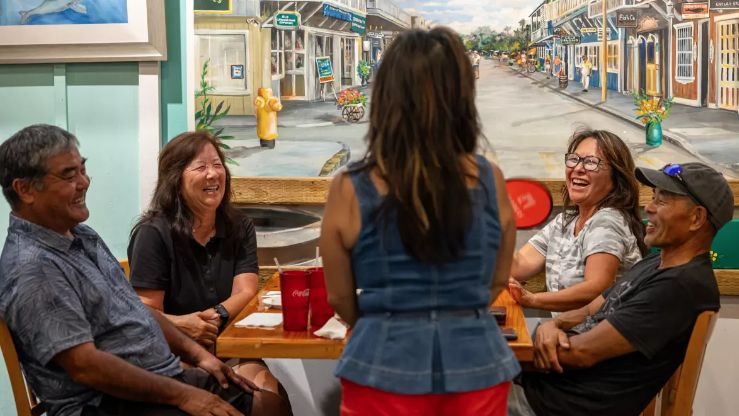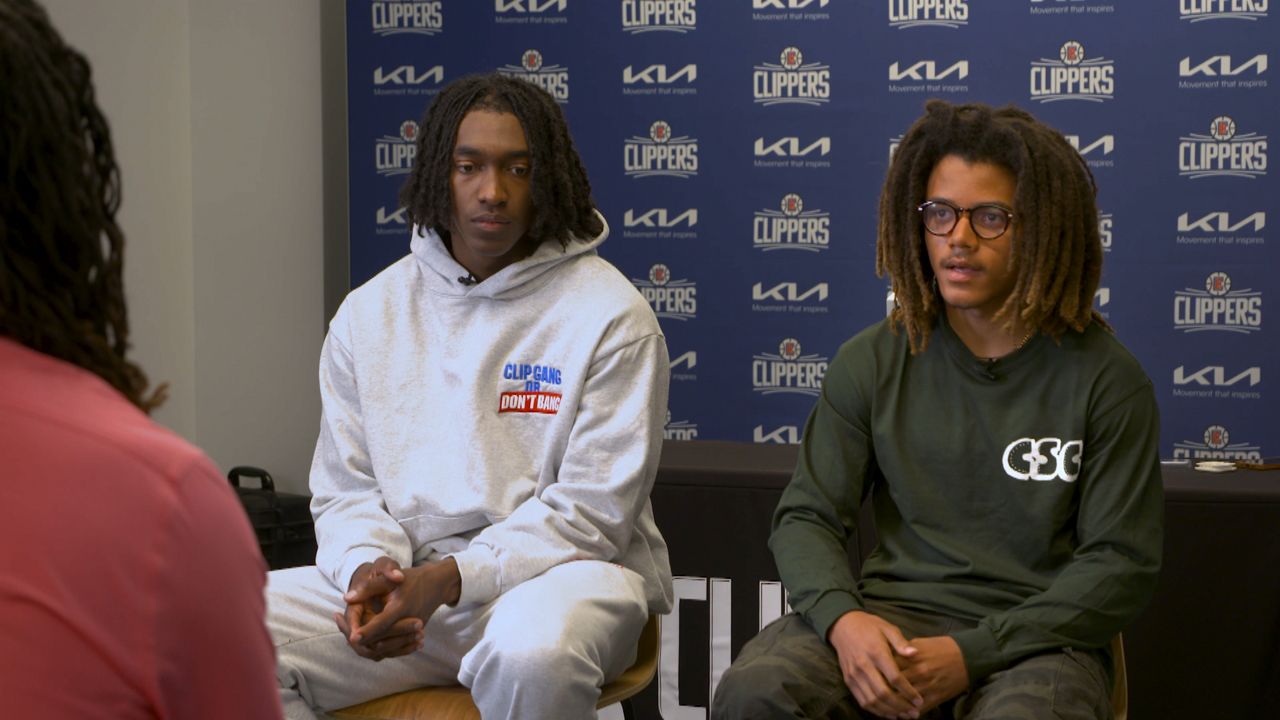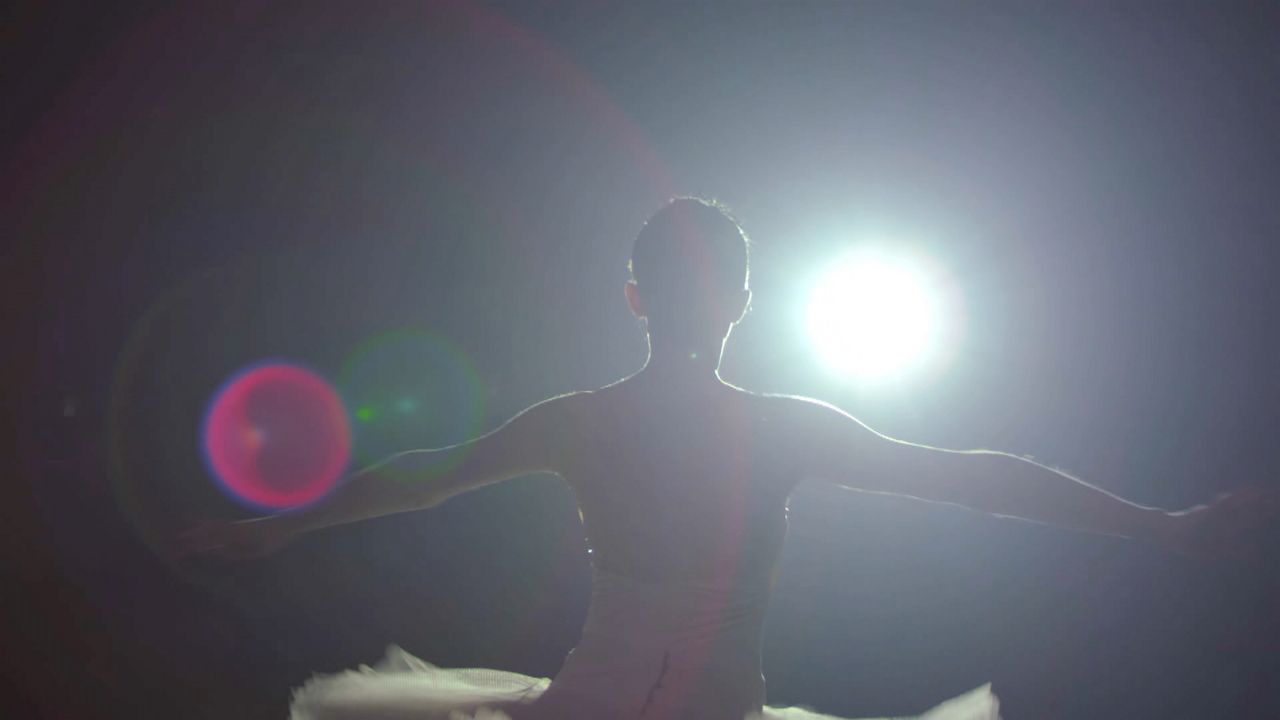In 1969, the Harlem Cultural Festival was held in New York.
The festival featured some of the biggest names in American music: Sly and the Family Stone, Nina Simone, Stevie Wonder, The Fifth Dimension, and Gladys Knight & the Pips, among others. The story of the Harlem Cultural Festival is told in "Summer of Soul," the Oscar-nominated directorial debut of Ahmir "Questlove" Thompson, who is also the drummer of The Roots.
What You Need To Know
- The Harlem Cultural Festival was nicknamed "Black Woodstock"
- It was held in 1969 in New York, and then largely forgotten
- There were 300,000 people in attendance
- Performers included Stevie Wonder, Gladys Knight & the Pips, and Nina Simone
In an interview for "LA Times Today," Thompson told host Lisa McRee about the film and his Oscar nomination.
"This concert was thrown as a means to heal a community. Harlem, as with every city in America, was really hurting over the assassination of Martin Luther King. Cities were burning. There were riots everywhere. A year later, the city didn't quite know if they completely healed or there was still tension in the air. So as a means to not have a repeat performance of the previous summer, the city granted a wish to a promoter named Tony Lawrence and the producer who shot the whole thing, Hal Tulchin, and granted them permission. They got funding from Maxwell House to throw a festival that would reach over 300,000 people."
In the decades following the festival, the concert was lost to time. Many people, including Thompson, had never even heard of it. He explained how the "Black Woodstock" was almost forgotten.
"The last week of the festival happened 10 days before Woodstock. And the marketing of Woodstock was bigger than Woodstock. Woodstock actually got to define the time and a generation. So, when these two producers approached me about what they called 'Black Woodstock,' I was in doubt because, I know everything about music. But I never heard this. You're telling me that Stevie Wonder, Sly and the Family Stone, and Nina Simone did a free show in Harlem, 300,000 people saw it, and not one newspaper article, not one photo, nothing is on the Internet now? I was instantly shrouded in doubt. And then once it came to me, my motivation for doing this was trying to figure out why would someone be so dismissive as to deny something so beautiful ever happening? And so that that was my mission: to restore history."
Reels of tape from the festival existed for decades, stashed in Hal Tulchin's basement. Tulchin had tried for years to sell the footage and make it into a television show, but no one would buy it. Fortunately for Thompson, the mostly unseen tapes had a high level of audio and visual quality. It took Thompson and his crew about six months to restore all the footage.
In "Summer of Soul," Thompson and his crew interviewed some of the artists who performed at the Harlem Cultural Festival. He spoke about the experience and how the pandemic changed his plans to talk to several artists.
"I got to talk to various artists and people that were there in the audience watching. Initially, the story I wanted to tell was how Harlem was sort of America's Black capital. America took its cue from Harlem. I wanted to expand to Spanish Harlem because we have all these world artists, people that we consider world artists. And I wanted to even expand further. I had all these artists lined up, and then once the pandemic happened, I lost them all because it wasn't safe to go outside. But then something really interesting happened. What I was editing was starting to look like what was on the news at that moment. This gave me a chance to reconfigure the story so that I could tell it even broader. So, the version we have now is the result of the pandemic, which is, it feels weird to say, definitely the right choice. The universe had its way. I wouldn't change a thing," he said.
The documentary examines the political and social realities of American in 1969 against the backdrop of the festival. Thompson said the film also reflects issues that the country faces today.
"I couldn't figure out a way to really connect [Gen Z] with the story. And then 2020 comes, and you're dealing with the same exact chaos and the issues and confusion that was happening in 1969. There was political unrest, protesters in the streets, unarmed shootings. I realized there's no particular artist that's going to resonate with Gen Z. However, what's happening on the streets will hook them because of the parallels of what they were going through in the summer of 2020. It was undeniable. That's when I realized I could hit five generations at once with this movie."
Thompson also spoke to a man who had attended the Harlem Cultural Festival as a child. For years, no one believed him that the concert had happened. Thompson said the footage helped give attendees and their families concrete memories that had been lost or forgotten.
"Mr. Jackson was my very first interview. He told us that this was his very first memory of life. People [say] it's very interesting that I chose to show them the footage and as they're watching it, to interview them. It's really because I wanted there to be something to spruce up their memories because my interviewees were 70, 80 years old. So, I wanted something that jogged their memory. But we showed [Jackson] the footage after we interviewed him. That's when the tears started because he thought this was lost. No one believed anybody. This was like a little boy who cried wolf."
"The most beautiful thing about after this movie came out were the amount of people that have reached out about [family members]," Thompson continued. "There was one family that literally had no photos. They couldn't afford a camera. They never had a photo of the eldest son got drafted in Vietnam, and he passed away. So, for them to see him for a five second shot, that was their only evidence of him being alive. A lot of people got their lives and their memories back with this film. It was a very, very important time in history, and I'm really, really fortunate enough to be the first person to bring it to a modern time."
“Summer of Soul” is available to stream on Hulu or Disney+.
Watch "LA Times Today" at 7 and 10 p.m. Monday through Friday on Spectrum News 1 and the Spectrum News app.











